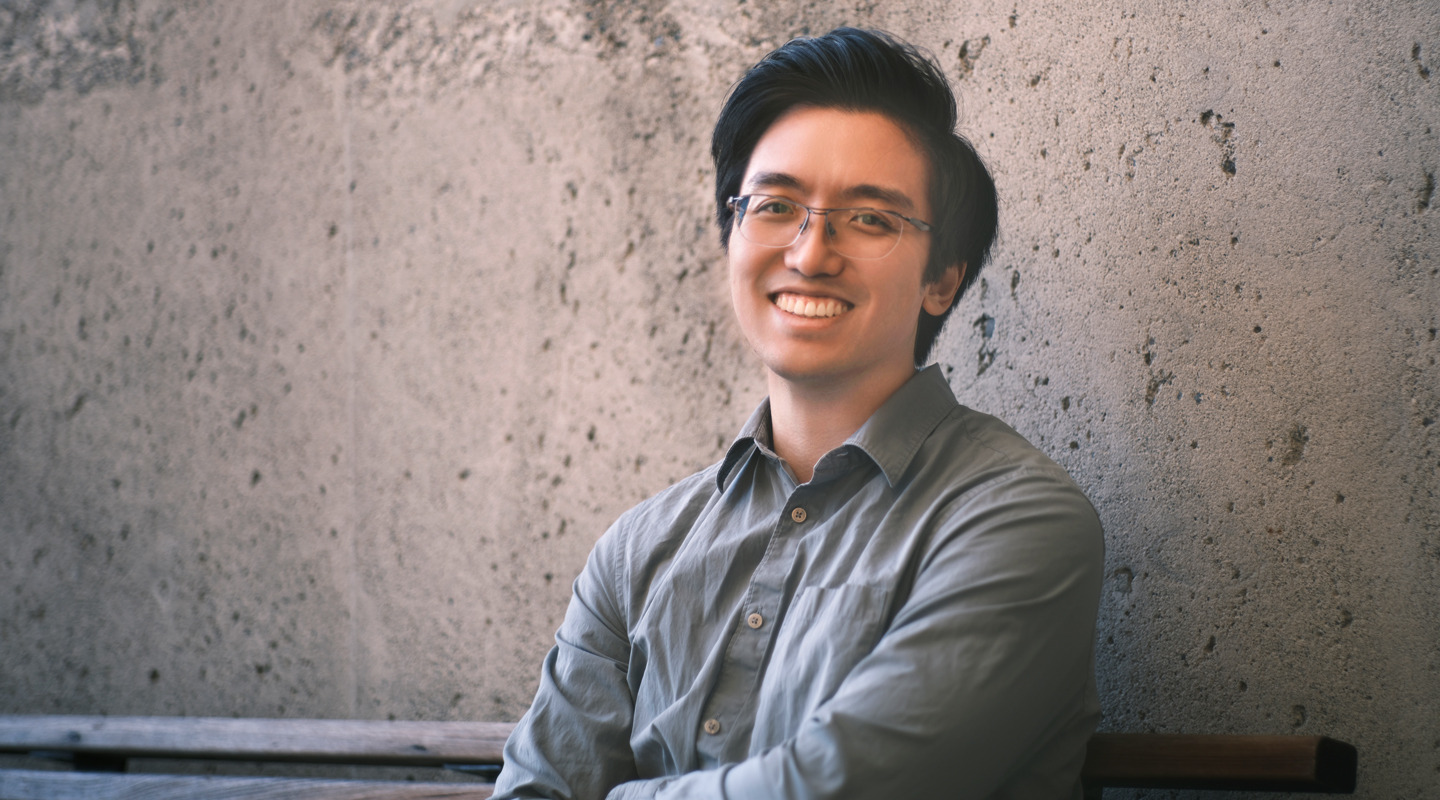The devices we wear and carry in our pockets know a lot about us. They know our movements, our locations, and our attention spans. Orson (Xuhai) Xu thinks they should be more responsive to our needs.
“The devices around us should be able to listen better,” the Information School Ph.D. candidate said. In fact, Xu thinks devices such as smartphones and smartwatches hold the potential to help people change bad habits and improve their mental health. But to get there, researchers must first gain a firm understanding of what they can learn about people from the data, a focus of Xu’s research.
Because they are always near us, smart devices have a built-in advantage for detecting behaviors and characteristics that would otherwise be hard to track. For example, data from such devices can show whether someone exhibits signs of depression, Xu said, noting that depression diagnoses are correlated with several things smartphones can detect, such as shorter sleep increments and fewer location changes.
Researchers hope to design technology that promotes better mental health, but first they need to develop reliable methods to understand what the data is telling them. To explore that, Xu and fellow researchers, including his faculty advisor, iSchool Dean Anind K. Dey, have collected several years of data from participating students at the University of Washington and developed algorithms to detect the likelihood that a student is experiencing a mental health issue.
The next step is to demonstrate that what they learn from one population, like UW students who volunteer for a study, can be applied more generally. That has thus far been a major challenge to researchers looking to make use of artificial intelligence.
“People are throwing AI liberally at lots of different problems, getting results that are interesting and cool and saying, ‘Oh, great,’” Dey said. “But if you can’t reproduce it, that means you’ve trained it on a set of people who are very different from the people I trained it on.”
This is known in the field as the “reproducibility problem,” and it prevents researchers from having confidence that their algorithms can be applied more broadly.
“It’s the elephant in the room,” Xu said. “People are aware of this problem, but nobody has access to multiple comprehensive datasets, so they just publish on their own datasets.”
A recent paper authored by Xu could offer a major advancement toward addressing the issue. Xu, Dey and 14 collaborators introduced GLOBEM, a platform for comparing the effectiveness of algorithms. Using GLOBEM, an acronym for Generalization of Longitudinal Behavior Modeling, researchers can test their algorithms against multiple datasets to learn whether their findings are generalizable, or in other words, that they produce repeatable results from different datasets.
Demonstrating their belief in GLOBEM, UW researchers recently shared their own data on an open platform. The four years of data from nearly 500 participating undergraduate students will give fellow researchers a way to test their algorithms against different datasets to see whether they hold up.
Dey is a leading researcher in the area of ubiquitous computing, often shortened to UbiComp, a discipline that studies embedded technology in everyday objects. To encourage widespread use of GLOBEM, he said, he and his students will use it to test the generalizability of their findings before publishing them. “We want our community to commit to this,” he said.
Xu, who is co-advised by computer science Professor Jennifer Mankoff, has broad interests in areas such as ubiquitous computing, machine learning and human-computer interaction. His curiosity extends to gesture recognition technology, and he recently interned at Apple, working to make smartwatches more accessible for users with disabilities. All of his work revolves around the “loop,” as he calls it, between humans and technology.
“I find it fascinating that machines can better understand us, but also can impact us,” he said.
His work has attracted notice from the UbiComp community. He was awarded the Gaetano Borriello Outstanding Student Award at UbiComp 2022, recognizing his contributions and leadership. Dey praised him as a “research machine.”
“He’s not scared of any problem. He’s not afraid to go deep. He’s not afraid to go broad,” Dey said. He sees Xu, who has his sights set on an academic career, as a future leader in the field.
“I’ve had an opportunity to see how he mentors other students, and it’s pretty spectacular,” he said. “He’s the total package in terms of what I would want to put out there for the next generation of faculty members.”
